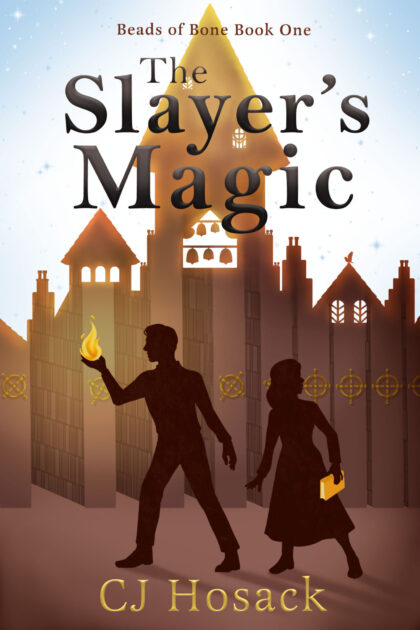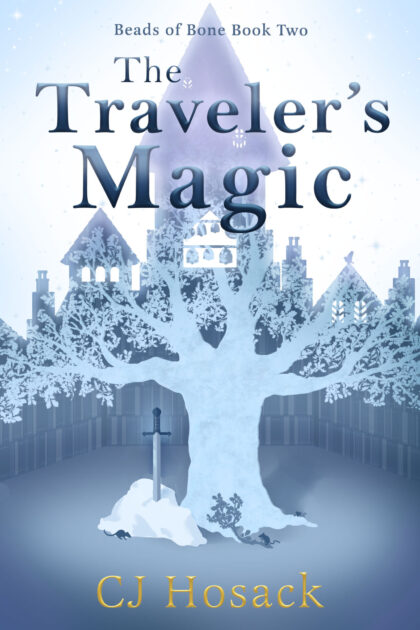Writing games. I avoided them for years because I was short on time, not ideas. Once I lifted my head from my page, I realized my focus was all wrong. This one-hour-a-week “game” held incredible lessons I couldn’t get anywhere else.
So why the reluctance? That’s the easy part. Take a first-born, type-A personality with a novel in its final draft, multiple short stories out on rejection””oops, I mean submission, numerous other half-written stories, and a second novel that’s itching for a conclusion, then disrupt that work with “games” full of nonsensical sentence prompts, and odd pictures, and you’ll find a non-believer who prefers to focus on “real” work.
I’d occasionally pop into the session, but more often than not, I’d log out as soon as I heard it was a writing game and not the story discussion or feral writing time I’d expected. If I had a deadline to meet, anything with the word “play” was dismissed automatically. Who had time for play? For five and a half years, fun writing seemed like an oxymoron.
 I remember getting a rush of rejections, one after another, on stories I’d poured my soul into. I wasn’t hitting the right notes somewhere, and it was time to figure out where. Yet I joined writing games with a casual attitude, logging less than a hundred words per challenge. I had good ideas, but I’d edit my sentences as I went, placing structure and grammar above word count. Others did four or five times my number of words in the ten to fifteen minutes per prompt, and even though I knew the writing gems appeared in unfettered prose, I couldn’t stop fixing things. It wasn’t satisfying, and soon I was back to one or two sessions a month.
I remember getting a rush of rejections, one after another, on stories I’d poured my soul into. I wasn’t hitting the right notes somewhere, and it was time to figure out where. Yet I joined writing games with a casual attitude, logging less than a hundred words per challenge. I had good ideas, but I’d edit my sentences as I went, placing structure and grammar above word count. Others did four or five times my number of words in the ten to fifteen minutes per prompt, and even though I knew the writing gems appeared in unfettered prose, I couldn’t stop fixing things. It wasn’t satisfying, and soon I was back to one or two sessions a month.
For the next few years, I’d join a session if I was bored or had spare time. I still considered writing games an extra, as if writing for fun was a waste of time. Professional writers repeatedly told me, “Don’t correct your work. Let it flow.” Sure, I told them, but I didn’t mean it. I hadn’t found that crucial key that added value to prompt writing. Then one session, a brave reader shared an emotionally beautiful piece of prose inspired by a prompt I’d done little with. Hearing someone else achieve so much using the same prompt in the same length of time was inspiring. I wanted that and realized I’d handicapped myself by focusing on my own writing when I should have been listening to others.
Once my focus shifted, writing games became more than “fun.” The following week I dug in and wrote 193 words, still correcting as I wrote, but less than before. I read to the group, and people waved in appreciation. Then a more seasoned writer read her work. Her character came alive in the first sentence, and she’d given her listeners a strong sense of place, so when the plot kicked in, and things got dark, I pictured the surroundings as if I were there. I instantly saw where my work fell short. I’d drafted a plot outline””a summation. I wanted those primordial elements of life on the page, and her example showed me the way. Her skills, added to all the other things I’d done to improve my craft, lit a spark of understanding, and my writing changed at that moment.
With my resistance gone, I attended each writing-games session with a “challenge accepted” attitude, and my interest leaped from a three-four to an eight-nine. The key wasn’t in the task or the prompt but in hearing what others did with it””how they started their piece, the word choices, phrasing, character description (an area where I truly suck), and other elements handled in a way I envied. I was playing, but in a way that made sense to me.
One of the regulars at writing games is so good at drilling down on a sentence. She doesn’t just write of things normally associated with the contents in the sentence; she lists the things it’s not, then builds support for what it is. For example, the prompt: “Desire is no light thing.” She wrote that a dead body is heavier than a living one, but it should be lighter since the dead no longer have desires, and desires keep people alive””grounded with a gravity that can’t be ignored. I mean, wow! Then there’s another regular who creates the best descriptions and another who launches into crazy, off-kilter prose that shoves my logical mind aside. Taking the creative leap with him is exhilarating.
The range and variety of works are fun, and not in a candy-crush time-sucking way, but fun the way reading is fun. Everyone constructs their stories differently, and whether they focus on setting, character, plot, or a beautiful meld of all three, the creativity and flex of craft are always impressive. There are still prompts that don’t tickle my muse. Take “what are we but ten minds? this is sent with love. this paper has gone far.” I was blank on this one with a capital “B,” but others in the group produced some great pieces, and listening to the “what and how” of their prose was as important to my growth as a writer as plying my own skills to the task.
Looking back, I realized I needed those first years to understand that I was creative and could pull a story from the air using a prompt. But when I wanted more, writing games offered that too.
Beauty lies in the impulsive writing, the understanding and skill brought by the other players, and the option to listen while others read their work. Of course, reading is always optional, but it’s a supportive, safe place to share when your muse strikes. No one gives critiques here, and getting those double-hand waves for a piece that delights you feels pretty nice after writing in isolation these last few years. It’s also a great place to try new techniques, viewpoints, or styles, like poetry or second person.
After six months, I can honestly say my writing has improved. It has miles to go, but that’s the fun of it. I don’t want a skill-level ceiling. Last week, I wrote 247 words in twelve minutes””my new record. I had a character with a personality twist, a plot arc, a strong antagonist, and a good ending. I drafted a story. In twelve minutes. It needs fleshing out, and there’s no setting, but I saw people gasp when the story took an unexpected turn, so I know the bones are there.
The coolest part? I didn’t get there on my own.
Join Cat Rambo and friends on Wednesdays at 11:00 a.m. Pacific Time for Writing Games.
If you’re an author or other fantasy and science fiction creative, and want to do a guest blog post, please check out the guest blog post guidelines. Or if you’re looking for community from other F&SF writers, sign up for the Rambo Academy for Wayward Writers Critclub!






 Welcome to the town of Waatch! It’s not on this planet, but where it resides in its world closely resembles Anacortes, Washington. It’s right there on the water, similar to the Puget Sound. In that world it’s not a sound, but definitely a mainland with islands nearby. So naturally the people of Waatch eat lots of fish and seafood. Ryn, whose story is in The Slayer’s Magic and The Traveler’s Magic, loves crab. She would prefer a nice plate of crab with some butter. But her best friend, Yll, is most fond of salmon salad sandwiches. If there’s salmon salad around, she will go straight to it. Especially if she’s been flying. Shapeshifting into a bird is hungry work. She prefers to be a cute robin redbreast, but has been known upon occasion to become an eagle. She could catch her own salmon that way, but she’s not into raw fish. There are lots of eateries that make salmon salad, but Yll’s favorite is The Tea Shop in Waatch.
Welcome to the town of Waatch! It’s not on this planet, but where it resides in its world closely resembles Anacortes, Washington. It’s right there on the water, similar to the Puget Sound. In that world it’s not a sound, but definitely a mainland with islands nearby. So naturally the people of Waatch eat lots of fish and seafood. Ryn, whose story is in The Slayer’s Magic and The Traveler’s Magic, loves crab. She would prefer a nice plate of crab with some butter. But her best friend, Yll, is most fond of salmon salad sandwiches. If there’s salmon salad around, she will go straight to it. Especially if she’s been flying. Shapeshifting into a bird is hungry work. She prefers to be a cute robin redbreast, but has been known upon occasion to become an eagle. She could catch her own salmon that way, but she’s not into raw fish. There are lots of eateries that make salmon salad, but Yll’s favorite is The Tea Shop in Waatch. The Tea Room’s Salmon Salad
The Tea Room’s Salmon Salad CJ grew up in Southern California loving fantasy and science fiction. She is married to her husband of thirty plus years, has four children, and an ever growing number of grandchildren. Adopted at eight months old, she recently found her birth parents. She has a Masters Degree in Public History from Southern New Hampshire University, and if she’s not writing you can generally find her quilting, costuming, or traveling to spend time with those she loves. She’s a wannabe dress historian, and has worked with museums on historical dress recreation. The Slayer’s Magic and The Traveler’s Magic are the first two books in the The Beads of Bone series. You can find CJ at her website
CJ grew up in Southern California loving fantasy and science fiction. She is married to her husband of thirty plus years, has four children, and an ever growing number of grandchildren. Adopted at eight months old, she recently found her birth parents. She has a Masters Degree in Public History from Southern New Hampshire University, and if she’s not writing you can generally find her quilting, costuming, or traveling to spend time with those she loves. She’s a wannabe dress historian, and has worked with museums on historical dress recreation. The Slayer’s Magic and The Traveler’s Magic are the first two books in the The Beads of Bone series. You can find CJ at her website 

